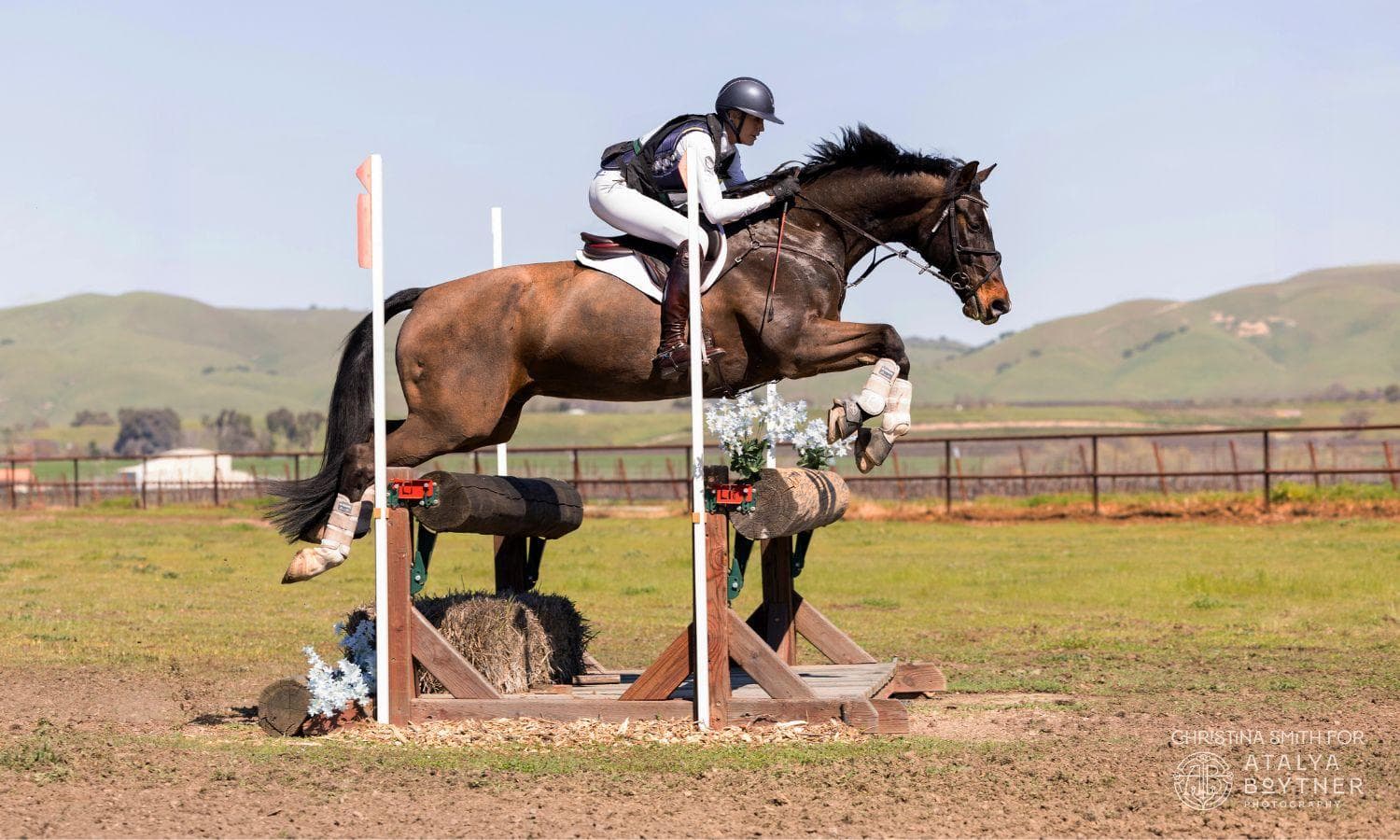Featured Clinician: Tik Maynard
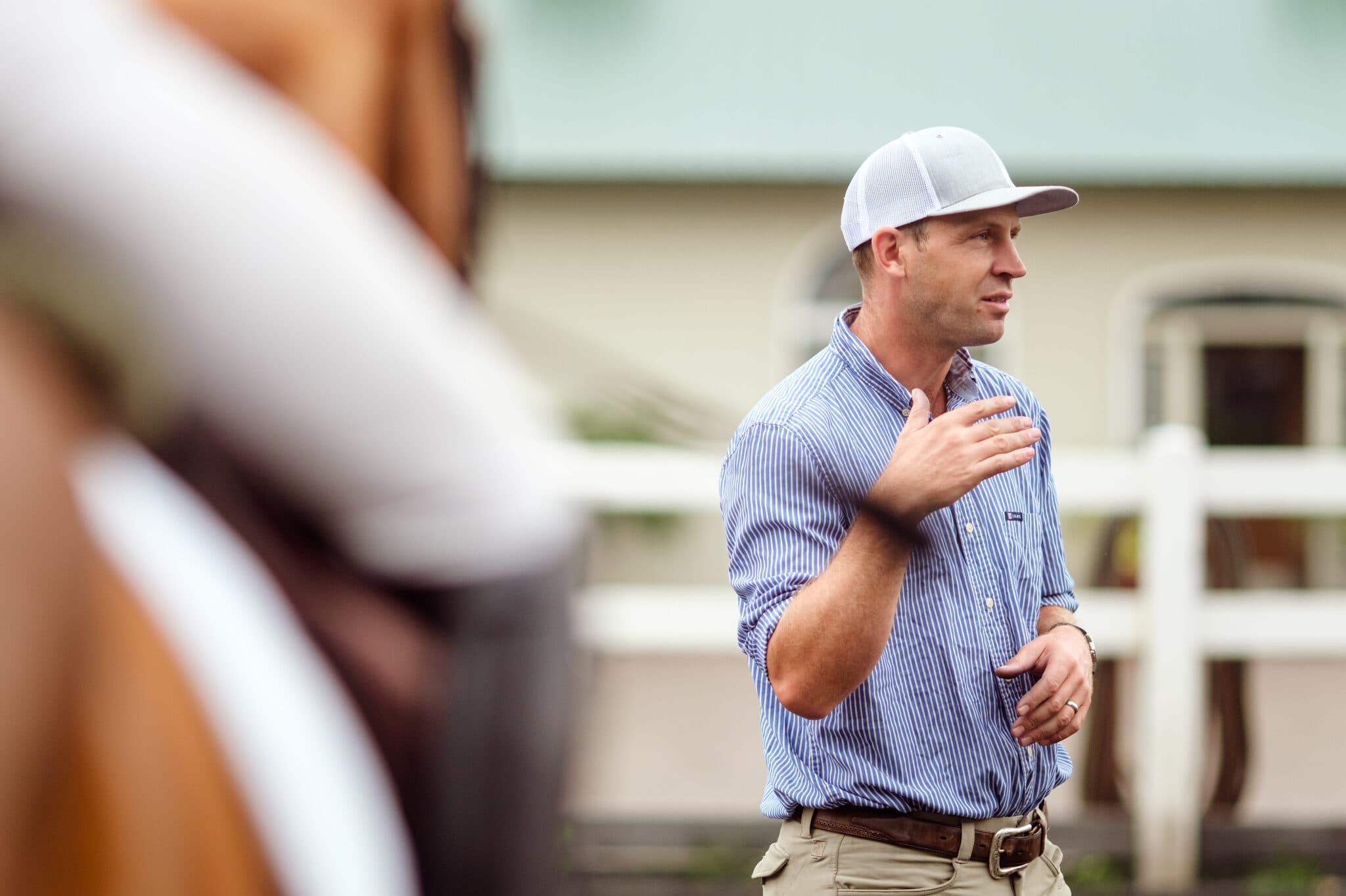
The Featured Clinician article series is provided through a partnership between Event Clinics and the USEA.
Tik Maynard’s unique equestrian resume has enabled him to successfully develop horses and riders through a teaching philosophy that instills confidence and sets pairs up for success regardless of end goals. A revered natural horsemanship and eventing trainer, Maynard’s career with horses has evolved from experiences for the betterment of horse and rider relationships.
Having spent his early years as a Pony Clubber in Vancouver with parents who were entrenched in equestrian sport, Maynard later went on to represent Canada at the 2007 Pan American Games in Modern Pentathlon. “I grew up thinking of horses as sport, about competition and training for that goal. When I went out I always had the idea that I was going to become a better rider. Then I went through a series of experiences with people around the world, and started to think more of riding horses as a relationship, and training as a process.”
Those experiences included working student and assistant trainer positions under such accomplished individuals as Anne Kursinski, Johann Hinnemann, Ingrid Klimke, David and Karen O’Connor, Bruce Logan, and Ian Millar. These legendary athletes and the horses in their varied programs taught Maynard invaluable lessons - for better or worse - that he carries with him to each new endeavor.
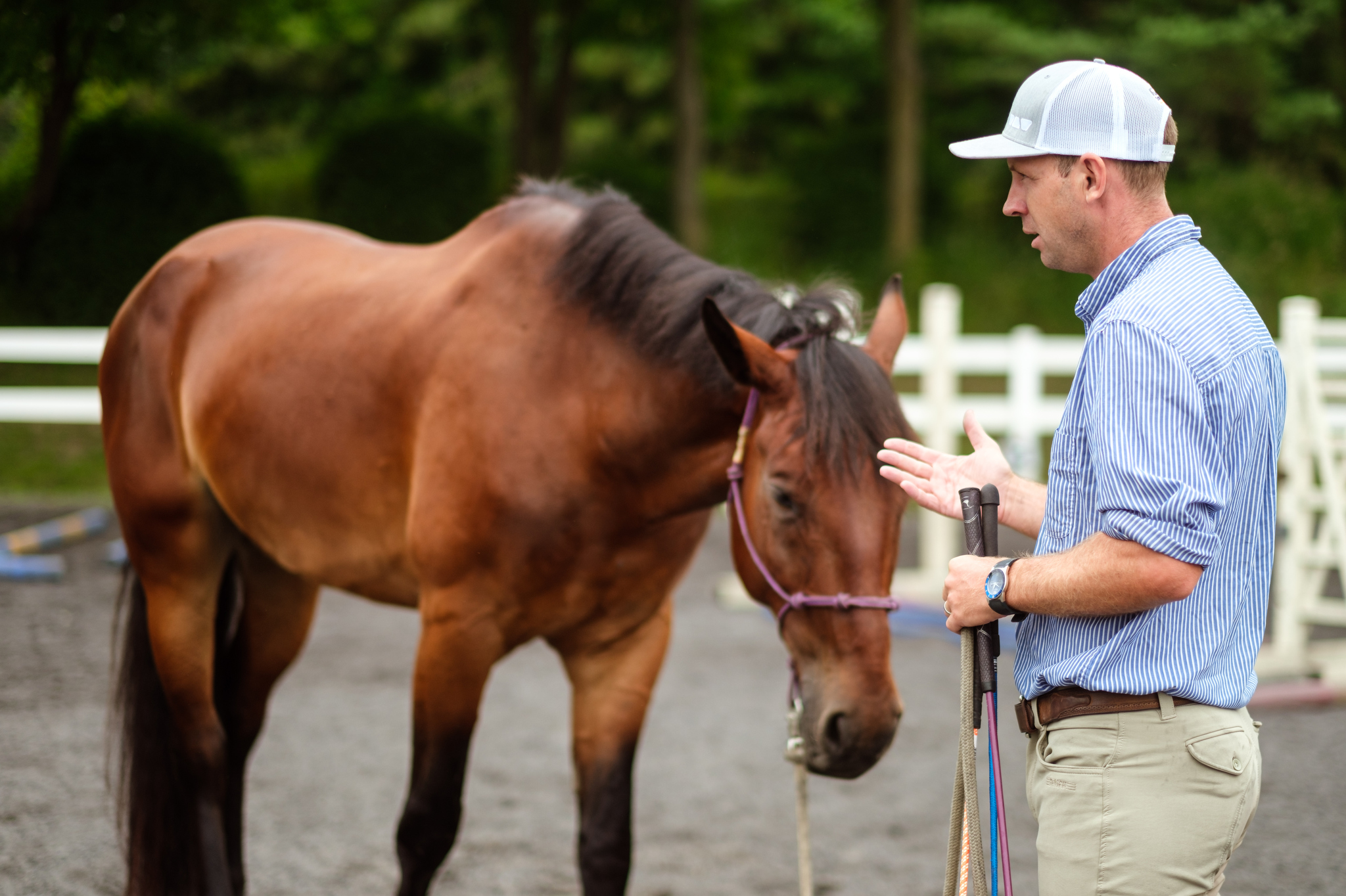
“If I could never compete again I would still ride. I would absolutely work with horses if I couldn’t ride. I’m so interested in how horses think, feel, and play. For me, that’s a bit of a different approach as of the last five to ten years, and it’s an approach that’s evolving.”
A much sought-after clinician, Maynard’s clinics attract horse and rider combinations working at all levels and with varied goals. From active competitors to horsemanship-focused owners, Maynard is able to absorb as much from his clinics as the participants do. “It’s a nice circle, my students help me improve. I get to practice with everyone and then bring that home to my own horses,” he said.
“At clinics, I really like having a question as I come in and then having multiple horses and riders deal with that question. Those experiences make me a better teacher of horses and students. And, I like meeting new people.”
“One of the biggest things I want to do is build confidence for horses and riders. Especially in a new clinic situation, with an unfamiliar group, I try to put people and horses in situations where they are gradually incrementally going to improve all the time. A huge part of confidence is understanding and relaxation. That’s definitely true with horses - a confident horse gives a rider confidence and vice versa.”
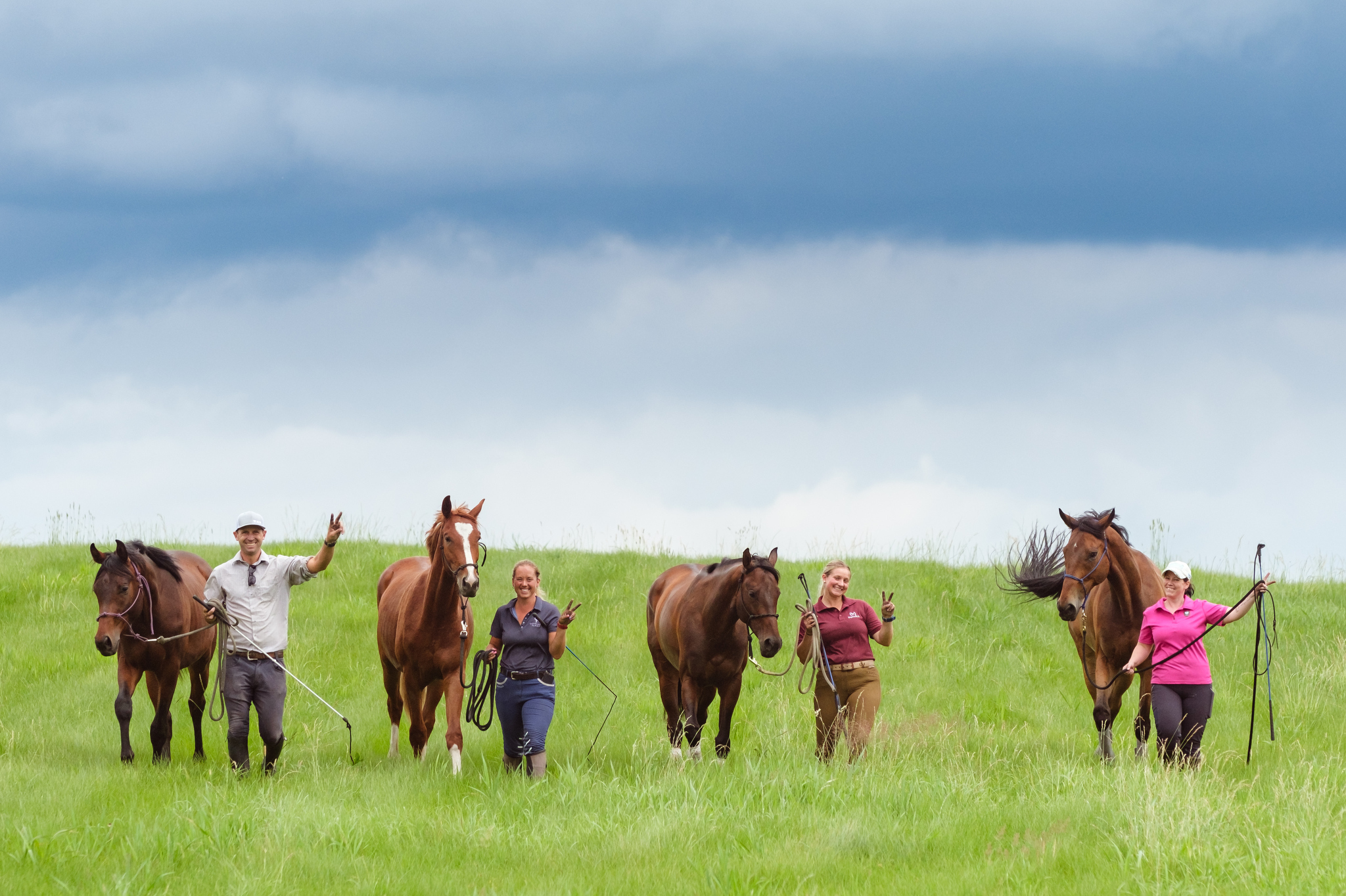
Motivated to instill confidence in riders and their equine partners, Maynard aims to help riders to consider how they might approach training just a bit differently. “I’ll sometimes ask riders, ‘Is your horse ready to start jumping?’ and a rider will understand that as a yes or no question. But for me, I really think of that readiness as an infinite spectrum of being relaxed, or a scale of one to ten, to make it a bit simpler. On my scale, if a horse is above a three out of ten they’re too anxious to learn.”
Maynard’s encouraging demeanor and genuine interest in how the horses are thinking, feeling, and behaving helps to give riders the tools they need to create more effective ways to teach their horses and build better partnerships. The focus of his teaching has shifted with new experiences and a greater understanding of how horses process information and are able to enjoy themselves.
“I used to always say that riders should be aware of the difference between control and communication. For example, I could go over to someone and physically lift their arm or I could ask from a distance for them to lift their arm. In the past year or so I’ve added in something that I think is more important than communication: motivation.”
“What motivates horses? I think that’s different than how people are motivated in general, and we need to remember that. Each horse can be motivated differently, and we need to try to understand that. The idea is that the horse isn’t just doing what you want them to do, but you’re doing it together. Understanding motivation helps the horse get to the place where he can turn to you and say, ‘That was fun, let’s do it again.’”
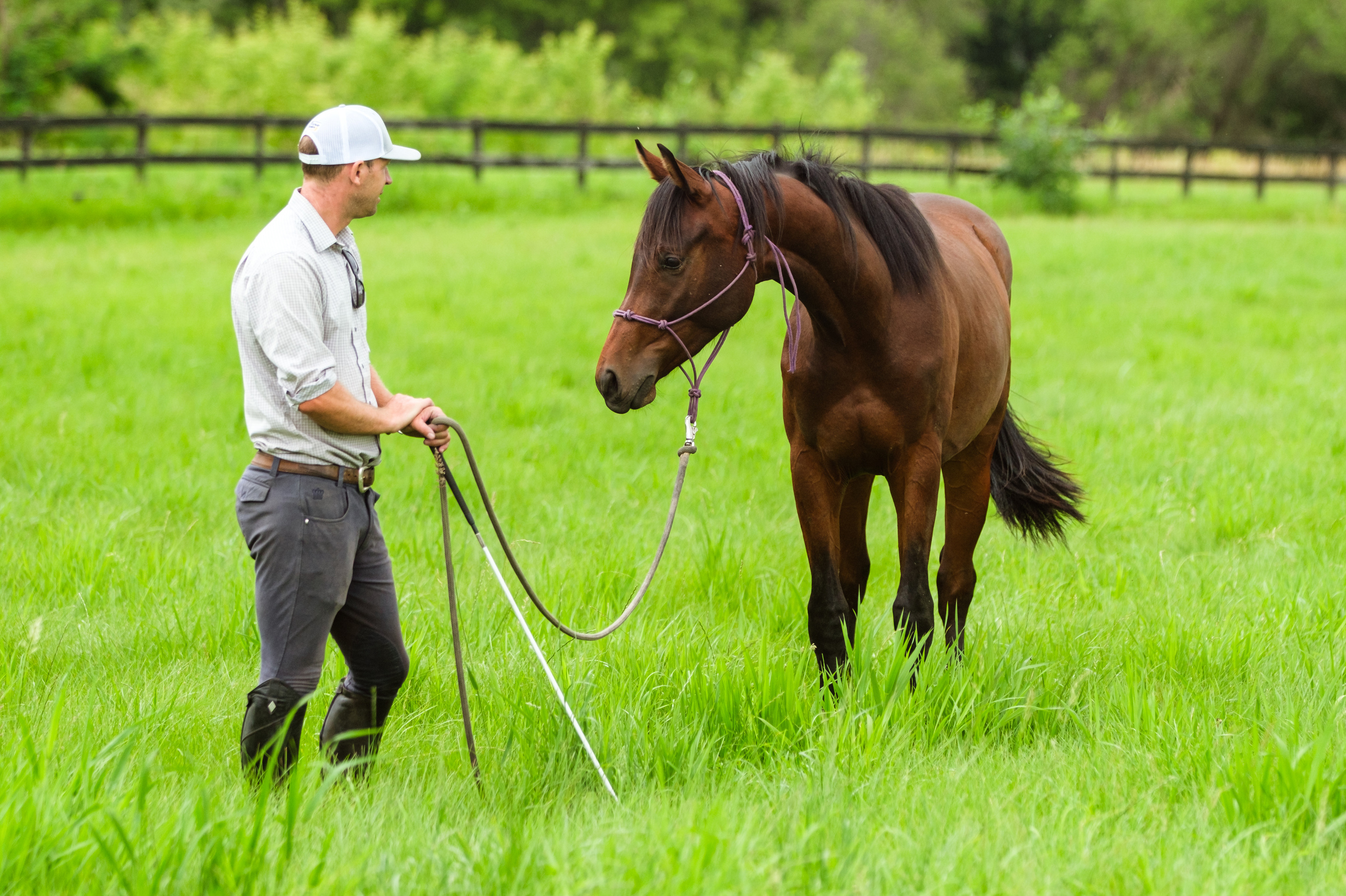
Keeping things fun and confidence-building for the horses should always be a priority for riders, even those with competitive ambitions.
“I’ve been thinking a lot lately about some advice someone gave me recently because I am writing an article for the Thoroughbred Makeover on their freestyle competition where you have six minutes to do whatever you want. I was told, ‘Don’t try to show 110 percent of what you can do. Show 80 percent of what you can do, and do it really well.’ It’s so important to remember because in competition with your horse you’re going to be on the edge and it becomes so easy to lose the connection between you and your horse.”
Maynard and his wife, five-star eventer Sinead Halpin, own and operate Copperline Farm in Citra, Florida. You can find and easily register for nationwide clinic opportunities with Maynard through Event Clinics by clicking here. For more information on Maynard’s program and other news, head to www.tikmaynard.com.
Maynard has chronicled much of what he has learned about equestrian sport, horsemanship, and himself in his book titled In the Middle are the Horsemen, which was published in 2018. The exploration of the process by which horses and humans can learn from one another is a core component of Maynard’s training and teaching methodology.
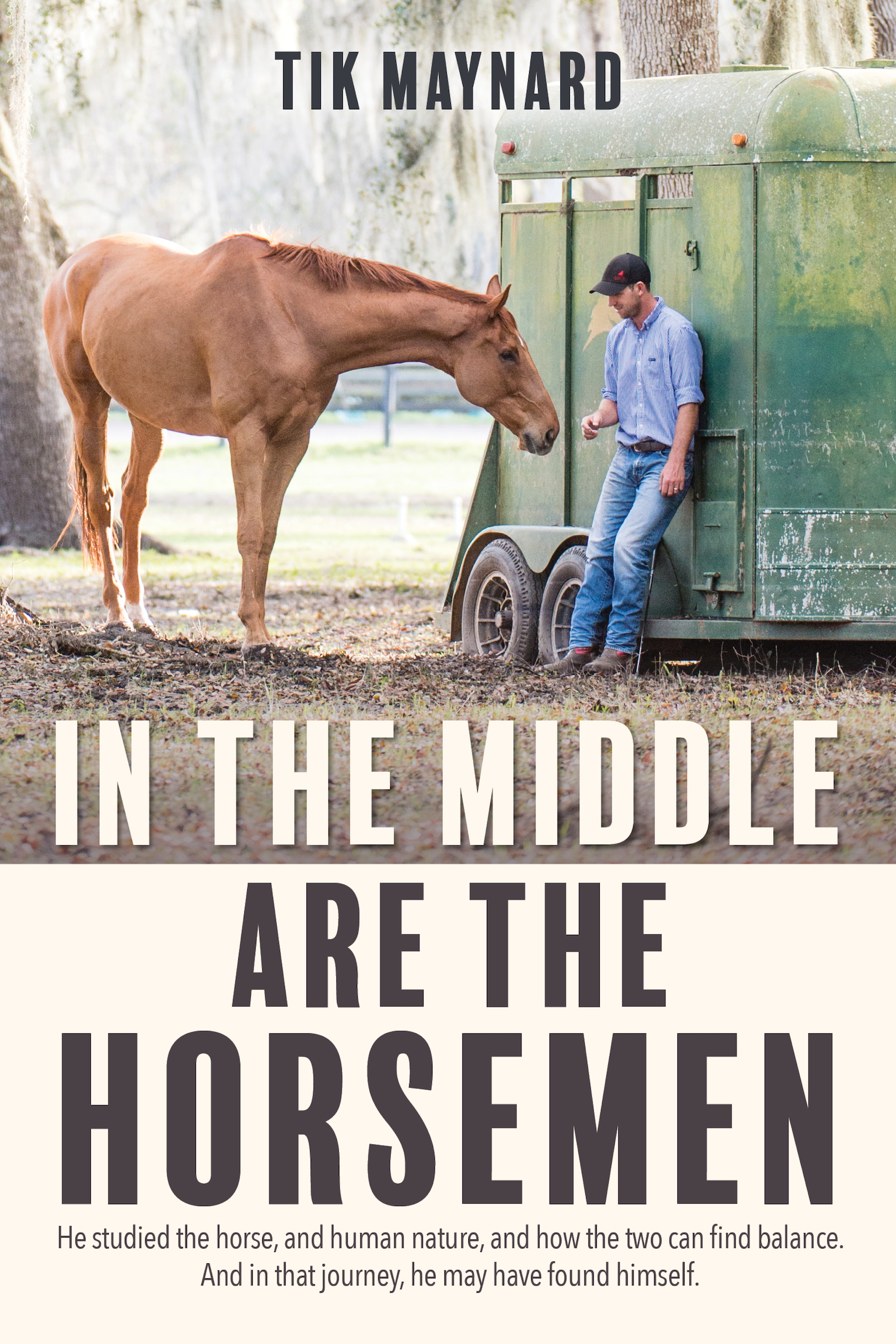
Photos of Tik Maynard’s July 2019 Clinic at Copeland Farms in Independence, Minnesota provided by Shelley Paulson Photography www.shelleypaulson.com.


